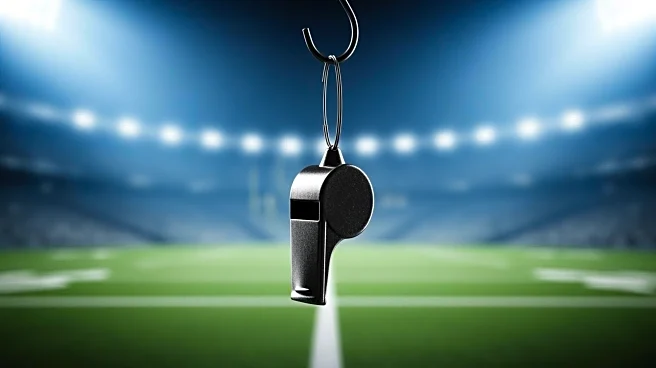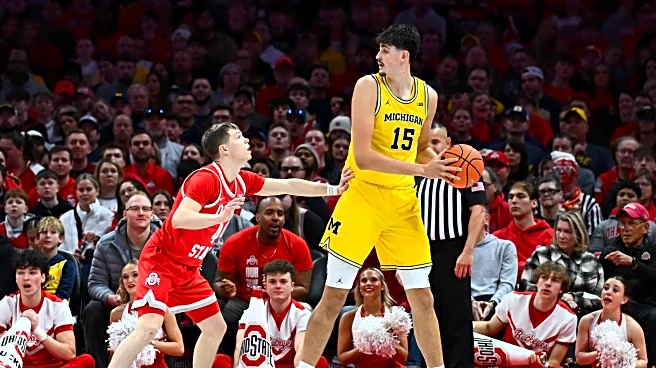What's Happening?
The Southeastern Conference (SEC) has suspended referee Ken Williamson for the remainder of the 2025 season due to controversial officiating during the Georgia Bulldogs' 20-10 victory over Auburn. The suspension comes after two key calls during the game
drew significant criticism. In the first half, Auburn quarterback Jackson Arnold fumbled near the goal line, a call upheld by replay officials, ending Auburn's drive. Shortly after, Auburn cornerback Kayin Lee was ejected for targeting following a helmet-to-helmet hit. In the fourth quarter, Georgia coach Kirby Smart disputed a potential timeout ruling, claiming Auburn's defense mimicked Georgia's snap count. The SEC has declined to comment on the suspension, stating it does not discuss personnel matters.
Why It's Important?
The suspension of a veteran referee like Ken Williamson highlights the intense scrutiny and pressure on officiating in high-stakes college football games. This decision could impact the perception of officiating standards within the SEC and may lead to increased calls for transparency and accountability in officiating decisions. The controversy also underscores the importance of accurate officiating in maintaining the integrity of the sport, as incorrect calls can significantly affect game outcomes and team standings. The decision may set a precedent for how the SEC handles officiating errors in the future.
What's Next?
The suspension of Ken Williamson may lead to discussions within the SEC about improving officiating standards and training. Teams affected by controversial calls may push for changes in how officiating errors are addressed. The incident could also prompt other conferences to review their officiating protocols to prevent similar controversies. Additionally, the SEC may face pressure from fans and teams to provide more transparency in officiating decisions and suspensions.
Beyond the Headlines
The suspension raises questions about the ethical responsibilities of referees and the potential impact of officiating errors on the careers of players and coaches. It also highlights the cultural significance of college football in the U.S., where games are not only sporting events but also community gatherings with deep-rooted traditions. The incident may lead to broader discussions about the role of technology in assisting referees and ensuring fair play.

















